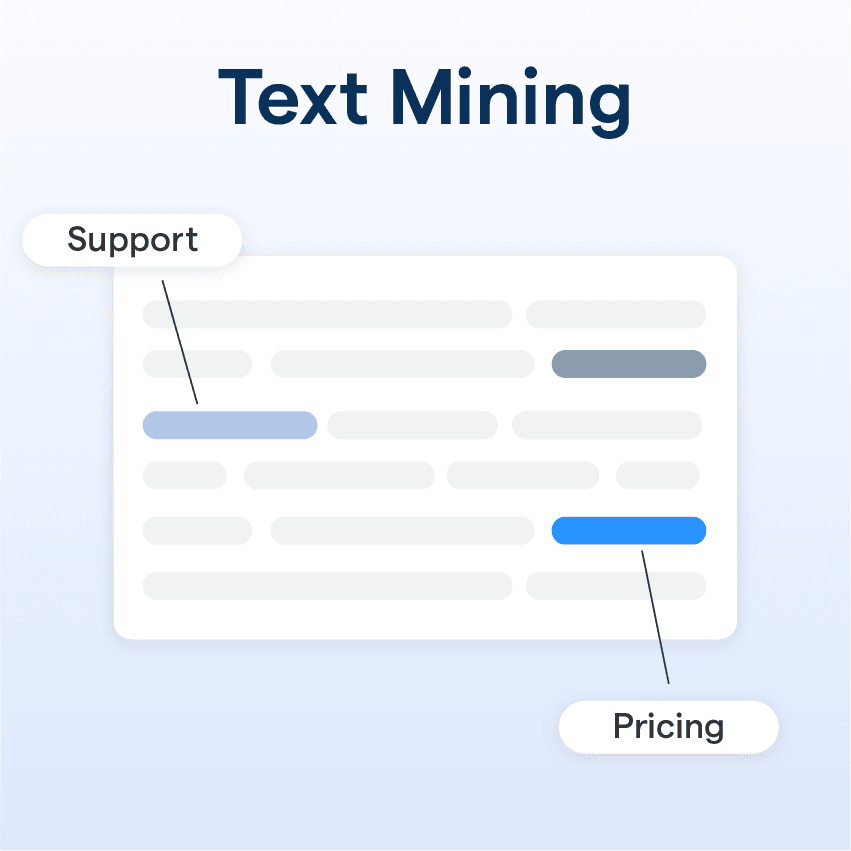What is Text Mining?
Text mining, also known as text data mining, intends to glean high-quality information from unstructured textual data by structuring it to discover meaningful patterns and emerge new insights.
With the proliferation of textual information, businesses needed tools to make sense of this data deluge. That's where text mining came into the picture, harnessing advanced techniques like Naive Bayes, Support Vector Machines (SVM), and deep learning algorithms.
The Core Constituents of Text Mining
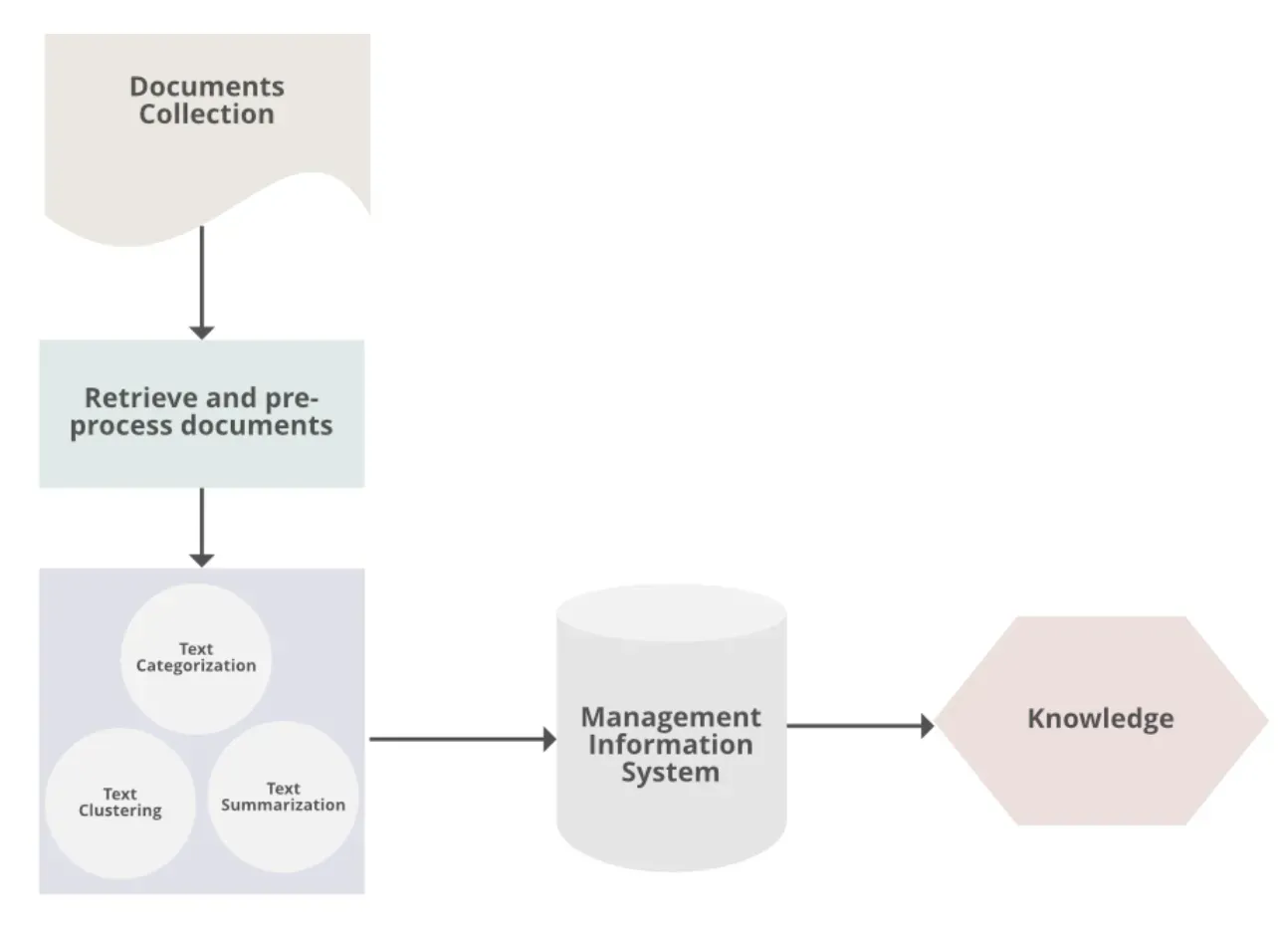
At its core, text mining deals with three types of data - structured, unstructured, and semi-structured, all of which bring valuable insights to the table upon processing.
The Power of Text Mining
Text mining is a powerful tool that helps companies explore and discover hidden relationships within their unstructured data, amplifying their decision-making prowess and fanning business growth.
How Text Mining Works?
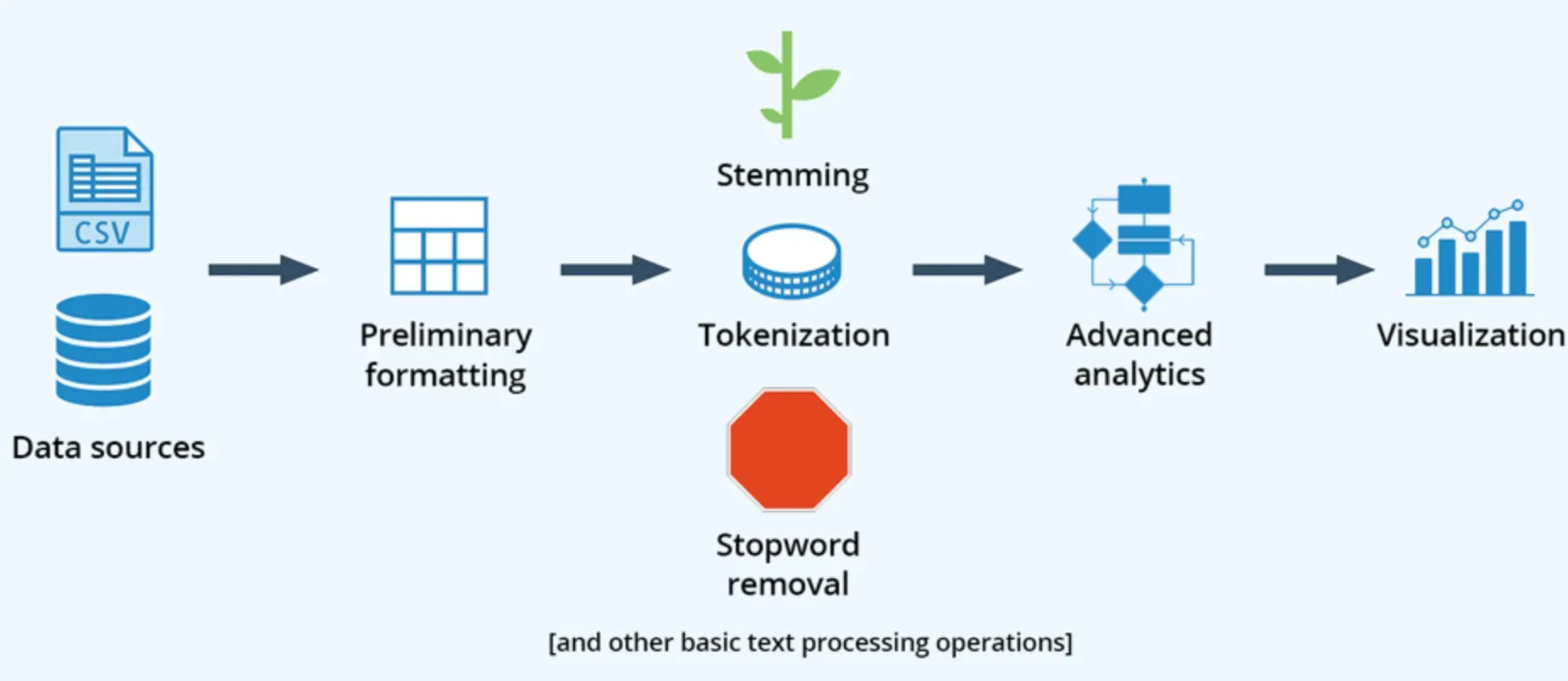
Accumulation of Data
The first step involves gathering unstructured data from multiple sources like emails, blogs, web pages, or PDF files - essentially, any medium rich in text content.
Pre-processing and Cleansing
Data anomalies are detected and eliminated through pre-processing and cleansing operations. This step helps find valuable information and identify the roots of specific words.
Conversion of Data
After cleaning, the relevant information extracted from unstructured data is converted into structured formats, making it ready for further analysis.
Analysis & Storage
Pattern analysis is conducted via a Management Information System (MIS), and valuable insights are stored in a secure database, aiding trend analysis and informed decision-making.
Distinction: Text Mining vs Text Analytics
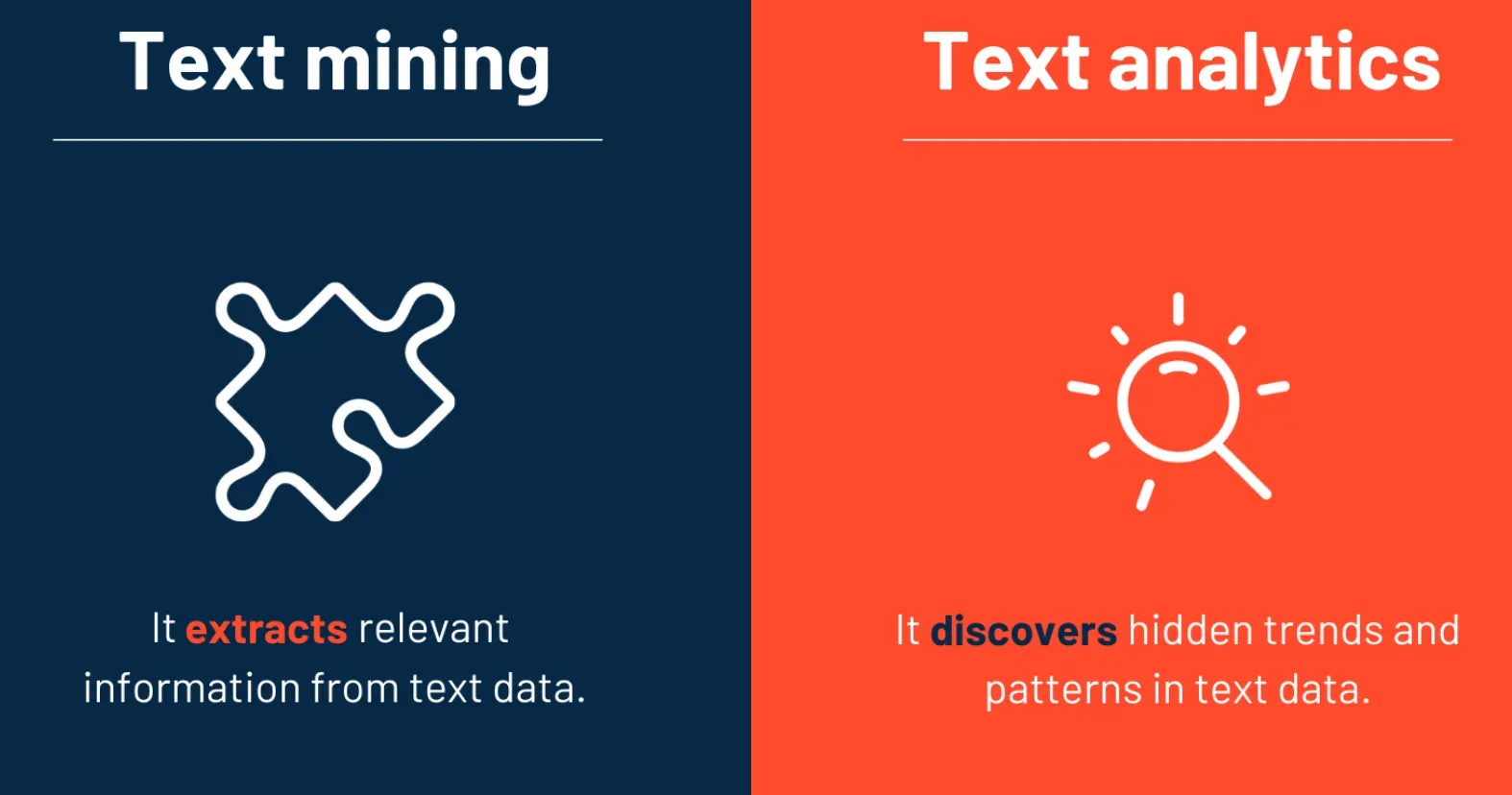
Overlapping Yet Distinct
While seemingly synonymous, there's a subtle difference between text mining and text analytics. Both aim to analyze raw text data, but the way they do it and their output vary.
Qualitative vs. Quantitative
Text mining identifies relevant information within the text, providing qualitative results, whereas text analytics focuses on finding patterns and trends across large data sets, giving more quantitative results.
Blend of Approaches
Choosing between text mining and text analytics depends on the available information. Conventionally, both approaches are combined for each analysis, granting richer results.
Popular Techniques in Text Mining
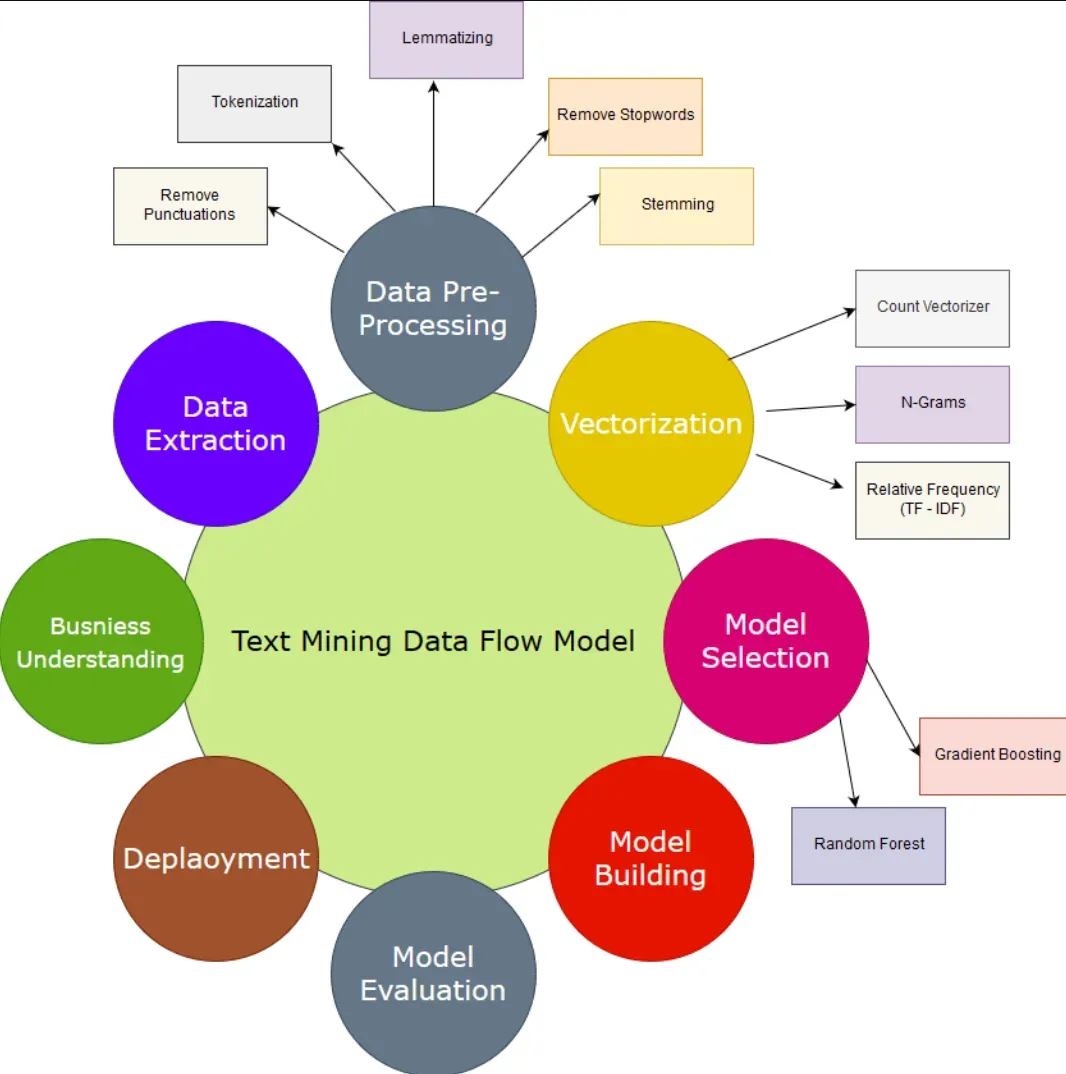
Information Extraction
This technique refers to processing large chunks of textual data to extract meaningful information. The accuracy of the outputs is evaluated using precision and recall processes.
Information Retrieval
As the name suggests, information retrieval pertains to extracting relevant patterns based on specific words or phrases. Google and Yahoo search engines are prime examples of this technique.
Categorization
Also known as Natural Language Processing (NLP), this process entails assigning texts to predefined topics based on their content. Spam filtering and web page categorizing are typical uses of NLP.
Clustering
This technique organizes textual information into relevant subgroups or clusters for further analysis. It's a vital tool for data distribution and a pre-processing step for other text-mining algorithms.
Applications of Text Mining
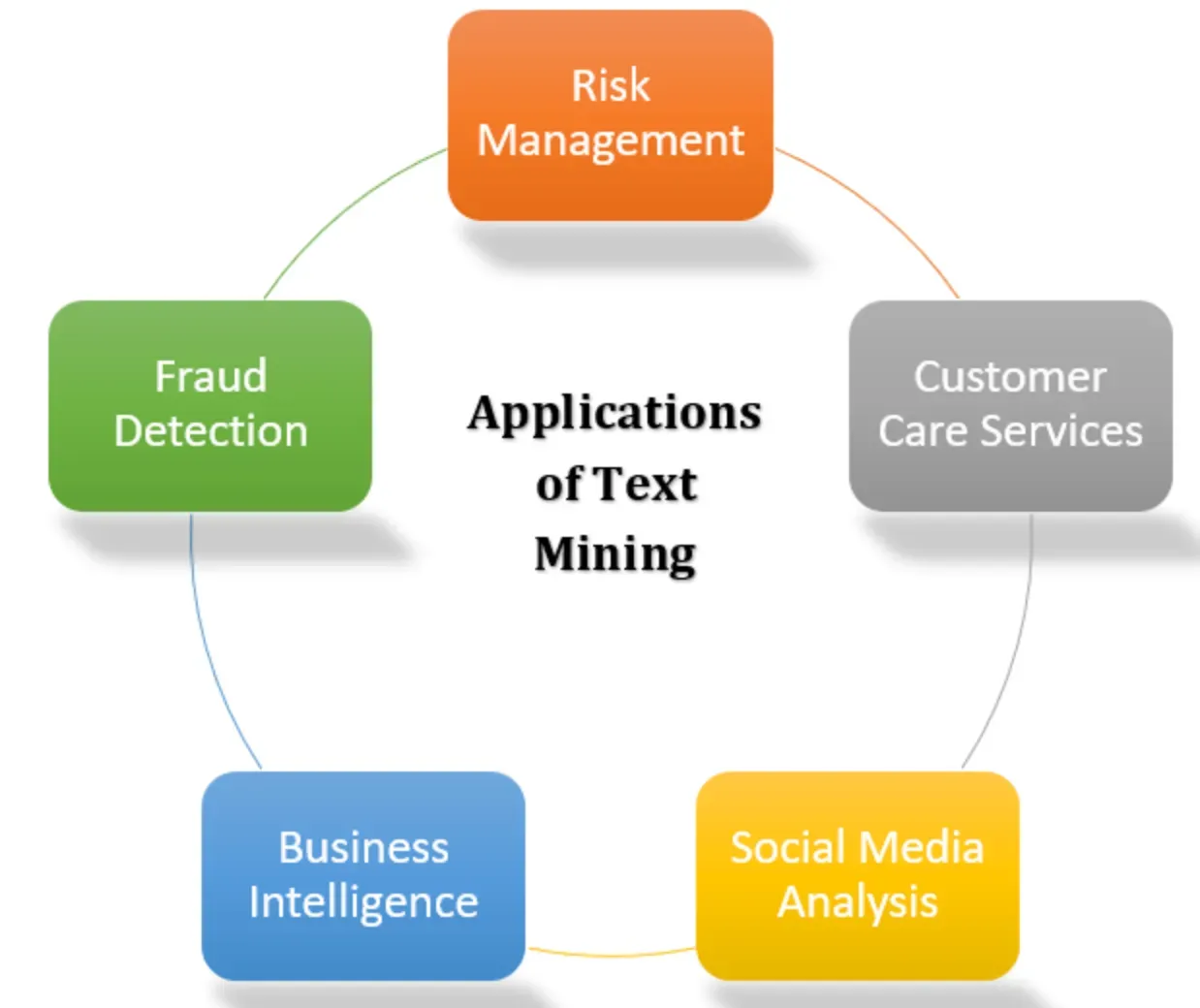
Customer Service
In customer service, text mining combined with sentiment analysis provides mechanisms for businesses to prioritize key pain points, enhancing customer satisfaction.
Risk Management
In risk management, text mining provides insights into industry trends and financial markets, proving invariably valuable for banking institutions.
Maintenance
Maintenance professionals utilize text mining to understand the root causes of failures, automate decision-making, and enhance preventive procedures.
Healthcare & Biomedical Field
Researchers in the biomedical field find text mining techniques valuable for clustering information from medical literature, providing time-efficient automation for valuable information extraction.
Spam Filtering
Text mining serves as a filter to exclude spammy emails from inboxes, enhancing user experience and reducing the risk of cyber-attacks.
Frequently Asked Questions (FAQs)
What is Text Mining?
Text mining, also known as text data mining, is the process that transforms unstructured textual data into structured form to extract meaningful information and insights.
How does Text Mining work?
Text mining works by gathering unstructured data, cleaning and pre-processing it, transforming it into structured information, conducting pattern analysis, and then storing the valuable insights for future use.
What's the difference between Text Mining and Text Analytics?
Text mining identifies relevant information within the text, providing qualitative results, while text analytics finds patterns and trends across large data sets, yielding more quantitative results.
What are some popular techniques in Text Mining?
Some popular text mining techniques include information extraction, information retrieval, categorization (or Natural Language Processing), and clustering.
Where is Text Mining applied?
Text mining has varied applications, including customer service, risk management, maintenance, healthcare, and spam filtering.
